Jeep Avenger vs Mazda CX-60 – Which model is better for everyday use?
Everyday use, family trips or long-distance drives – here’s where the differences show.
Discover whether Jeep Avenger or Mazda CX-60 fits your lifestyle better.
Costs and Efficiency:
When it comes to price and running costs, the biggest differences usually appear. This is often where you see which car fits your budget better in the long run.
Jeep Avenger has a significantly advantage in terms of price – it starts at 21900 £, while the Mazda CX-60 costs 41900 £. That’s a price difference of around 19963 £.
Fuel consumption also shows a difference: Mazda CX-60 manages with 1.40 L and is therefore clearly more efficient than the Jeep Avenger with 4.90 L. The difference is about 3.50 L per 100 km.
As for range, the Jeep Avenger performs clearly better – achieving up to 400 km, about 336 km more than the Mazda CX-60.
Engine and Performance:
Power, torque and acceleration say a lot about how a car feels on the road. This is where you see which model delivers more driving dynamics.
When it comes to engine power, the Mazda CX-60 has a clearly edge – offering 327 HP compared to 156 HP. That’s roughly 171 HP more horsepower.
In acceleration from 0 to 100 km/h, the Mazda CX-60 is clearly quicker – completing the sprint in 5.80 s, while the Jeep Avenger takes 9 s. That’s about 3.20 s faster.
In terms of top speed, the Mazda CX-60 performs somewhat better – reaching 219 km/h, while the Jeep Avenger tops out at 194 km/h. The difference is around 25 km/h.
There’s also a difference in torque: Mazda CX-60 pulls significantly stronger with 550 Nm compared to 260 Nm. That’s about 290 Nm difference.
Space and Everyday Use:
Whether family car or daily driver – which one offers more room, flexibility and comfort?
Both vehicles offer seating for 5 people.
In curb weight, Jeep Avenger is clearly lighter – 1180 kg compared to 1890 kg. The difference is around 710 kg.
In terms of boot space, the Mazda CX-60 offers noticeable more room – 570 L compared to 380 L. That’s a difference of about 190 L.
In maximum load capacity, the Mazda CX-60 performs distinct better – up to 1726 L, which is about 449 L more than the Jeep Avenger.
When it comes to payload, Mazda CX-60 somewhat takes the win – 612 kg compared to 502 kg. That’s a difference of about 110 kg.
Who wins the race?
The Mazda CX-60 proves to be dominates this comparison and therefore becomes our DriveDuel Champion!
Mazda CX-60 is the better all-rounder in this comparison.
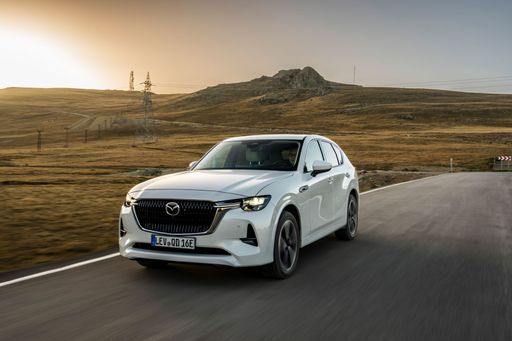
Mazda CX-60
Jeep Avenger
The Jeep Avenger is a compact SUV that brings a blend of rugged design and modern technology, making it ideal for both urban and off-road adventures. Its robust build and distinctive styling capture Jeep's iconic spirit while offering a comfortable and refined driving experience. With advanced safety features and a versatile interior, the Avenger caters to a wide range of drivers looking for practicality and excitement.
details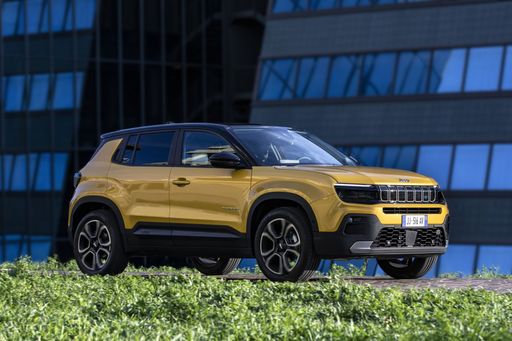 @ Stellantis
@ Stellantis
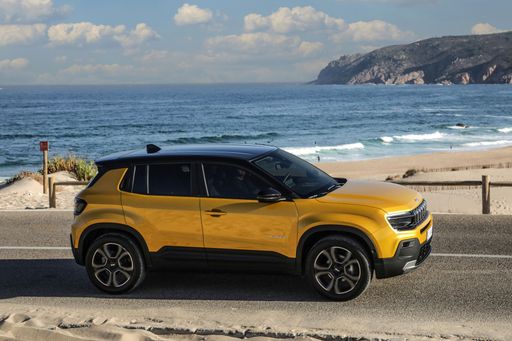 @ Stellantis
@ Stellantis
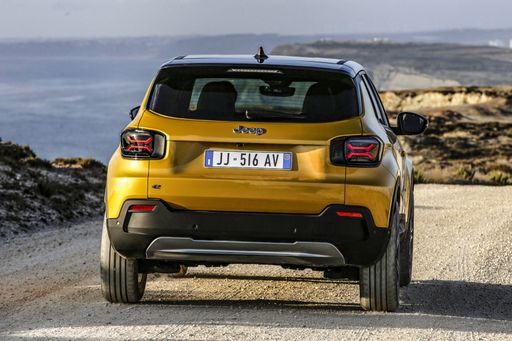 @ Stellantis
@ Stellantis
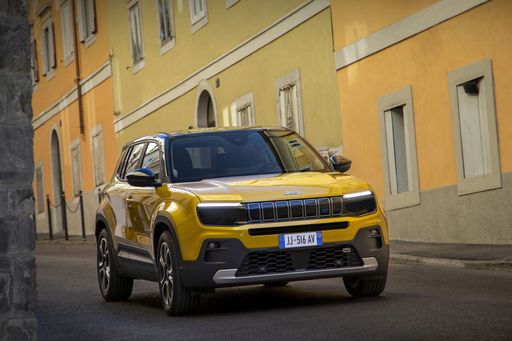 @ Stellantis
@ Stellantis
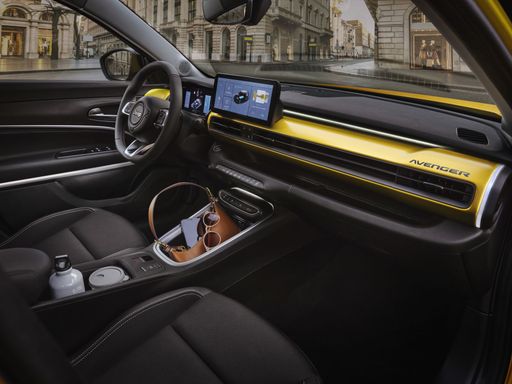 @ Stellantis
@ Stellantis
Mazda CX-60
The Mazda CX-60 exudes a sense of elegance and sophistication with its sleek design and refined styling. Inside, the cabin offers a harmonious blend of comfort and advanced technology, ensuring an enjoyable driving experience. On the road, the CX-60 delivers impressive performance and handling, making it a standout choice for those who appreciate driving dynamics.
details @ de.mazda-press.com
@ de.mazda-press.com
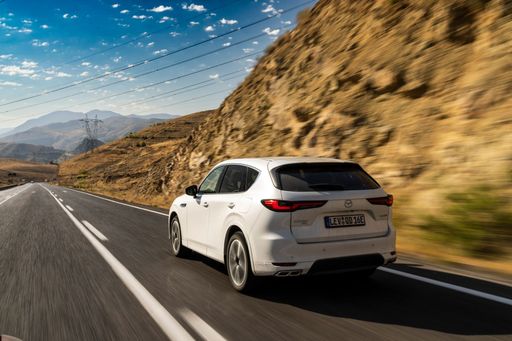 @ de.mazda-press.com
@ de.mazda-press.com
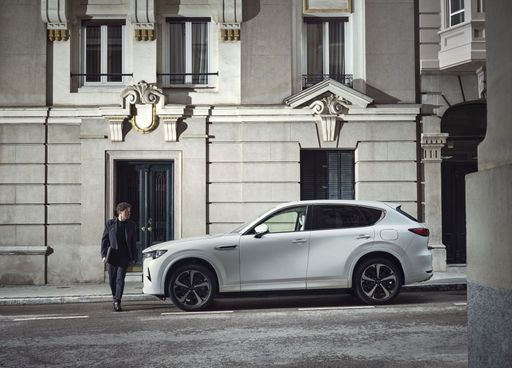 @ de.mazda-press.com
@ de.mazda-press.com
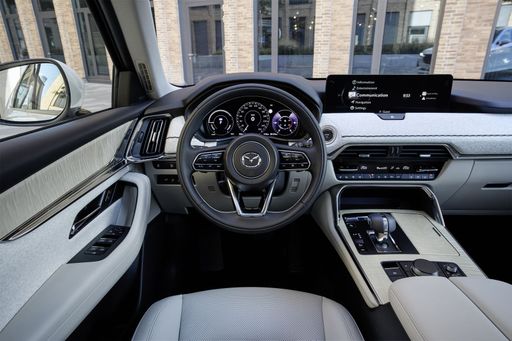 @ de.mazda-press.com
@ de.mazda-press.com

|

|
|
|
|
Costs and Consumption |
|
|---|---|
|
Price
21900 - 36900 £
|
Price
41900 - 56800 £
|
|
Consumption L/100km
4.9 - 5.7 L
|
Consumption L/100km
1.4 - 5.4 L
|
|
Consumption kWh/100km
15.50 kWh
|
Consumption kWh/100km
-
|
|
Electric Range
400 km
|
Electric Range
64 km
|
|
Battery Capacity
51 kWh
|
Battery Capacity
-
|
|
co2
0 - 129 g/km
|
co2
31 - 139 g/km
|
|
Fuel tank capacity
44 L
|
Fuel tank capacity
50 - 58 L
|
Dimensions and Body |
|
|---|---|
|
Body Type
SUV
|
Body Type
SUV
|
|
Seats
5
|
Seats
5
|
|
Doors
5
|
Doors
5
|
|
Curb weight
1180 - 1520 kg
|
Curb weight
1890 - 2055 kg
|
|
Trunk capacity
325 - 380 L
|
Trunk capacity
570 L
|
|
Length
4084 - 4088 mm
|
Length
4745 mm
|
|
Width
1776 mm
|
Width
1890 mm
|
|
Height
1527 - 1541 mm
|
Height
1680 - 1688 mm
|
|
Max trunk capacity
1218 - 1277 L
|
Max trunk capacity
1726 L
|
|
Payload
494 - 502 kg
|
Payload
581 - 612 kg
|
Engine and Performance |
|
|---|---|
|
Engine Type
Electric, Petrol, Petrol MHEV
|
Engine Type
Plugin Hybrid, Diesel MHEV
|
|
Transmission
Automatic, Manuel
|
Transmission
Automatic
|
|
Transmission Detail
Reduction Gearbox, Manual Gearbox, Dual-Clutch Automatic
|
Transmission Detail
Automatic Gearbox
|
|
Drive Type
Front-Wheel Drive, All-Wheel Drive
|
Drive Type
All-Wheel Drive, Rear-Wheel Drive
|
|
Power HP
100 - 156 HP
|
Power HP
200 - 327 HP
|
|
Acceleration 0-100km/h
9 - 10.6 s
|
Acceleration 0-100km/h
5.8 - 8.4 s
|
|
Max Speed
150 - 194 km/h
|
Max Speed
200 - 219 km/h
|
|
Torque
205 - 260 Nm
|
Torque
450 - 550 Nm
|
|
Number of Cylinders
3
|
Number of Cylinders
4 - 6
|
|
Power kW
74 - 115 kW
|
Power kW
147 - 241 kW
|
|
Engine capacity
1199 cm3
|
Engine capacity
2488 - 3283 cm3
|
General |
|
|---|---|
|
Model Year
2023 - 2025
|
Model Year
2024
|
|
CO2 Efficiency Class
A, D, C
|
CO2 Efficiency Class
B, D, E
|
|
Brand
Jeep
|
Brand
Mazda
|
What drivetrain options does the Jeep Avenger have?
Available configurations include Front-Wheel Drive or All-Wheel Drive.
The prices and data displayed are estimates based on German list prices and may vary by country. This information is not legally binding.
